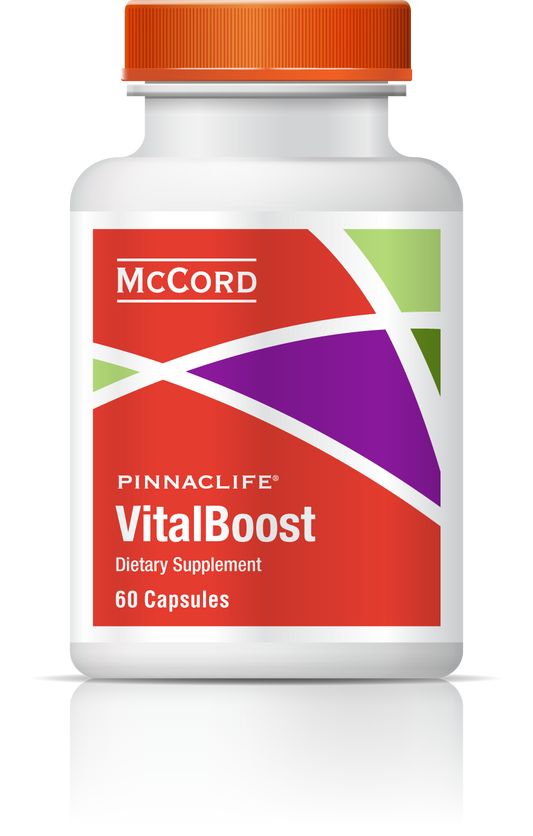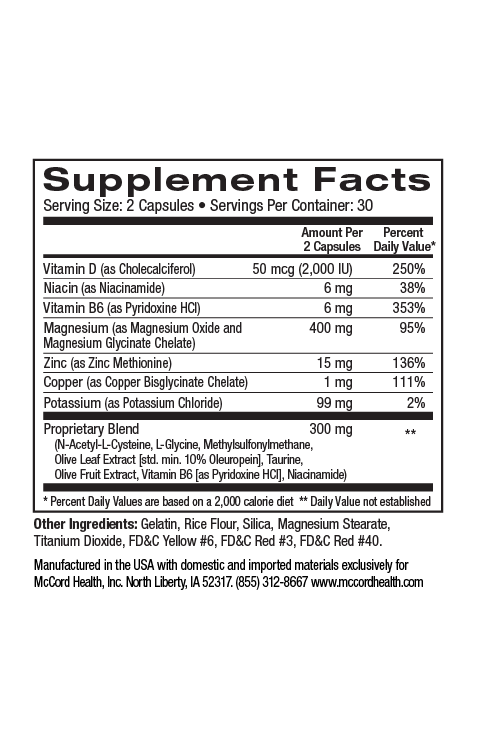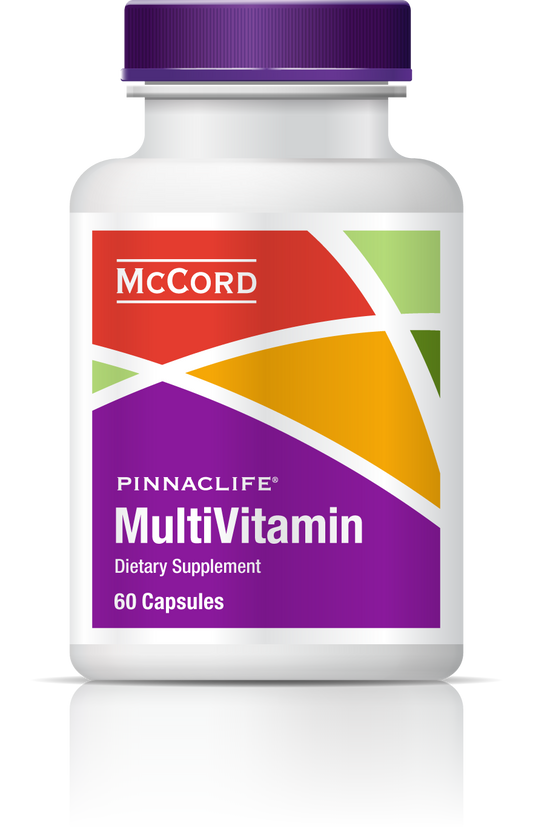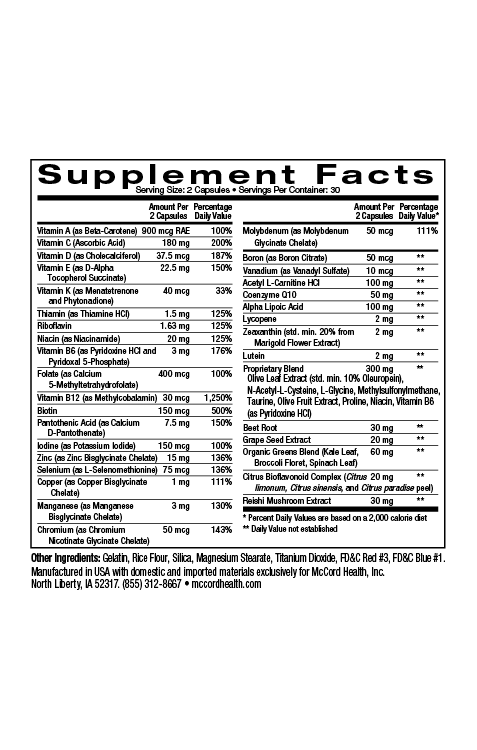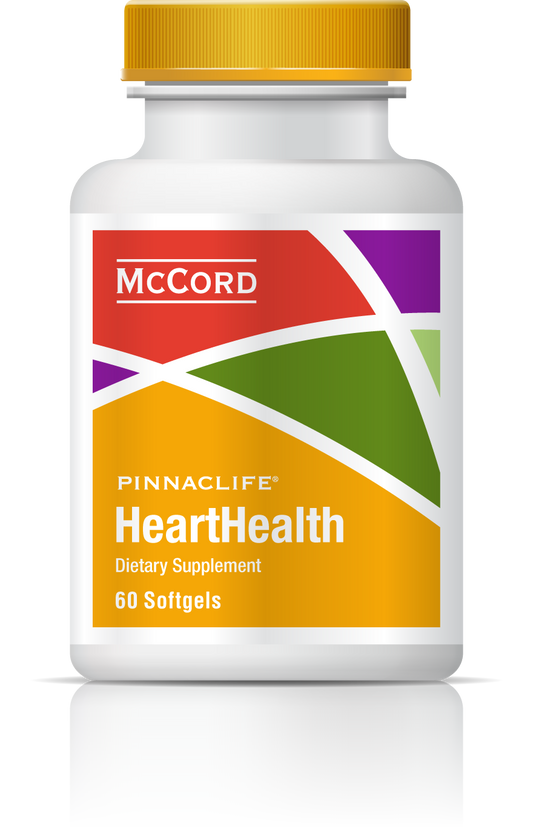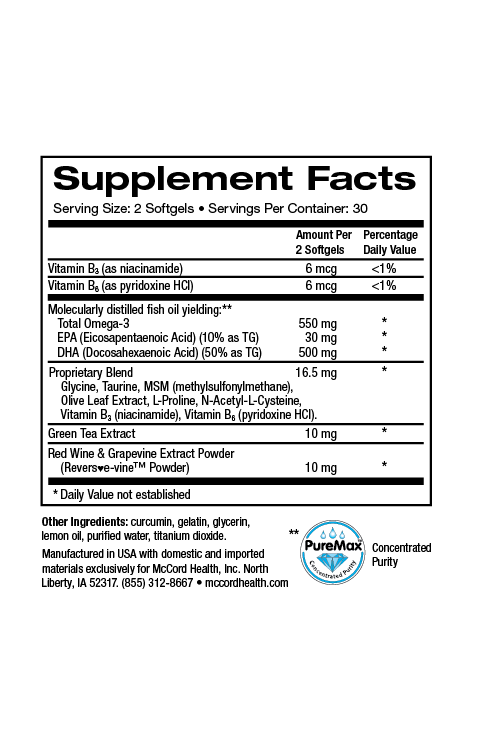High-stress situations cause a reaction in your body that allows you to quickly respond and recover to the situation. But prolonged stress creates a situation where your body is constantly in a heightened stress response that can cause oxidative stress, inflammation, and cellular dysfunction that decreases immunity.
- Your body has natural responses to stressful situations to help you survive the immediate threat
- Typically a stress response is short term and focused on short term survival at the expense of long-term consequences
- Prolonged periods of stress keeps your body in a constant state of short-term survival
- Prolonged stress left unchecked is known to contribute to long-term health problems including premature aging and early death
- There are things you can do to help lessen the biochemical effects of stress throughout the body, even if you can't remove the cause of the stress
Tell me more!
When an animal is in a dangerous situation, it has two choices: Stay and fight, or try to escape. When the body goes into this “fight or flight” response it causes the release of specialized stress hormones that help the body quickly react to the situation. You might be familiar with the effects of some of these “stress hormones” including adrenaline (epinephrine) and cortisol.
Stress responses are for short term survival
The release of stress hormones causes changes in your body that are intended to provide a burst of energy, strength, and focus to get through the immediate situation. Your blood sugar rises to provide cells with energy, your blood pressure and heart rate rise to increase blood flow, and your mind turns off all the background “chatter” shifting all the focus on the situation at hand.
Stress hormones are essential for survival, especially in urgent situations that trigger a fight or flight response. Fight or flight situations for animals usually resolve relatively quickly, so the body only experiences short periods of elevated stress hormones. But what happens when the fight or flight situation persists for days, weeks, months, or even years? Are there negative effects from having elevated levels of stress hormones for a long period of time?
Your Body is Constantly in "fight or flight" mode
While most of us are not typically experiencing fight or flight situations in the same way an animal faces a predator, we do experience daily stresses that our body handles in the same manner.
Even though each of us might respond differently to stress, the same basic biochemical processes occur, including the release of stress hormones and the subsequent effects.
Your Body Prioritizes Short-Term Survival over Long-Term Health
The problem is that these physiological changes are intended to help you survive the immediate threat, but not necessarily helpful for long-term survival. In fact, the changes can be detrimental to your long-term health.
If the stressful situation is not quickly resolved, the levels of stress hormones can remain elevated in your body for extended periods of time. This is one reason why it is so important to quickly resolve and limit those stressful periods and minimize their impact throughout the body.
Long-term effects of prolonged periods of stress
The stress hormone cortisol is a steroid hormone, so an easy way to discuss the long-term effects of elevated stress hormones is to look at the side effects seen with steroid medications, like prednisone, that have similar effects in the body. Common effects of prolonged exposure to steroids, like prednisone and cortisol, include:1,2
- Fluid retention
- Increased blood pressure
- Weight gain
- Increased fat deposition (especially around the abdomen, face, and back of the neck)
- High blood sugar / worsened diabetes
- Decreased immune function
- Thinning bones
- Thinning skin, bruising, and slow wound healing
Additional stress hormones like epinephrine (adrenaline) can cause elevated heart rate, blood pressure, and disruptions in normal endocrine function. Other hormones that are altered during periods of stress include thyroid hormones, growth hormone, insulin, gonadotropins, prolactin, and catecholamines.3 Considering how many hormones are involved in the stress response, it’s easy to understand how prolonged stress can have so many negative consequences on long term health.
Supplements for Supporting Healthy Stress Responses
There are key nutrients that can help to minimize the damaging effects that prolonged stress can have on your mind and body. Numerous studies have been published that have shown improvements in mental health, immune function, and energy levels using naturally occurring antioxidants, polyphenols, vitamins, and minerals that support cellular health and help protect the body from the effects of prolonged stress.
McCord Research Proprietary Blend Nutritional Supplements were developed based on sound scientific research to provide you with safe and effective ingredients that support your body during stressful times. They begin with the patented and scientifically tested Proprietary Blend that can help protect you from the negative effects of stress and fatigue on a cellular level using hydroxytyrosol from the olive and key supporting vitamins and amino acids. It helps protect cells from damaging free-radicals generated during stressful times by actually turning on natural repair mechanisms within the mitochondria and allowing them to resist the negative effects of stress.4,5
Other ways that McCord Research Proprietary Blend Nutritional Supplements help address stress include:
- ImmuneHealth contains the most potent dose of Proprietary Blend providing nutritional support for your immune system when prolonged periods of stress decrease your immune function, making you more prone to illness and infection.
- Proprietary Blend CalmMind and SleepHealth provide nutrients like magnesium and curcumin that can help to reduce feelings of anxiety that frequently accompany stress.10–13
- Proprietary Blend EnergyBoost and BrainHealth contain an extract from a plant called Rhodiola rosea that is classified as a “stress adaptogen” meaning that it helps your body adapt to stressful situations. Research has shown that active compounds found in Rhodiola rosea can help to reduce feelings of stress and fatigue while having favorable effects on the release of many stress hormones including catecholamines and adrenaline.6–9
Managing Stress in a Healthy Way
It would be great if we could completely eliminate stress from our lives, but we know that despite our best efforts this is likely an impossible goal. Our best bet is to incorporate lifestyle changes that help to reduce the levels of stress in our lives, and reduce the effects of stress throughout our body.
Be sure to work closely with your healthcare team to determine a plan that works best to reduce the effects of stress in your life. Adding McCord Research Proprietary Blend Supplements to a healthy diet can help provide your body with that extra cellular support to minimize the effects of daily stress throughout your body.
References
- Wosu AC, Valdimarsdóttir U, Shields AE, Williams R, Williams MA. Correlates of Cortisol in Human Hair: Implications for Epidemiologic Studies on Health Effects of Chronic Stress. Ann Epidemiol. 2013;23(12):797-811.
- Moghadam-Kia S, Werth VP. Prevention and treatment of systemic glucocorticoid side effects. Int J Dermatol. 2010;49(3):239-248.
- Ranabir S, Reetu K. Stress and hormones. Indian J Endocrinol Metab. 2011;15(1):18-22.
- Sarsour EH, Kumar MG, Kalen AL, Goswami M, Buettner GR, Goswami PC. MnSOD activity regulates hydroxytyrosol-induced extension of chronological lifespan. Age (Omaha). 2012;34:95-109.
- McCord DE, Karagiannis T. Hydroxytyrosol and Oleuropein compositions for induction of DNA damage, cell death and inhibition of LSD1. 2015:95. http://www.google.com/patents/US9144555.
- Spasov A, Wikman G, Mandrikov V. A double-blind, placebo-controlled pilot study of the stimulating and adaptogenic effect of< i> Rhodiola rosea</i> SHR-5 extract on the fatigue of students caused by. Phytomedicine. 2000. http://www.sciencedirect.com/science/article/pii/S0944711300800781.
- Kelly GS. Rhodiola rosea: A Possible Plant Adaptogen. Altern Med Rev. 2001;6(3):293-302. http://www.bio-genesis.com/productpages/eskaloft/Rhodiola Alt Med Rev 2001.pdf.
- Darbinyan V, Kteyan a, Panossian a, Gabrielian E, Wikman G, Wagner H. Rhodiola rosea in stress induced fatigue--a double blind cross-over study of a standardized extract SHR-5 with a repeated low-dose regimen on the mental performance of healthy physicians during night duty. Phytomedicine. 2000;7(5):365-371.
- Olsson EM, von Schéele B, Panossian AG. A randomised, double-blind, placebo-controlled, parallel-group study of the standardised extract shr-5 of the roots of Rhodiola rosea in the treatment of subjects with stress-related fatigue. Planta Med. 2009;75(2):105-112.
- Lakhan SE, Vieira KF. Nutritional and herbal supplements for anxiety and anxiety-related disorders: systematic review. Nutr J. 2010;9(42):1-14.
- Sartori SB, Whittle N, Hetzenauer a, Singewald N. Magnesium deficiency induces anxiety and HPA axis dysregulation: modulation by therapeutic drug treatment. Neuropharmacology. 2012;62(1):304-312.
- Lin Z, Shi L, Lu J, et al. Effects of curcumin on glucose metabolism in the brains of rats subjected to chronic unpredictable stress: a 18 F-FDG micro-PET study. BMC Complement Altern Med. 2014;14(202):1-9.
- Noorafshan A, Abdollahifar M-A, Karbalay-Doust S, Asadi-Golshan R, Rashidian-Rashidabadi A. Protective effects of curcumin and sertraline on the behavioral changes in chronic variable stress-induced rats. Exp Neurobiol. 2013;22(2):96-106.
Disclaimer: These statements have not been reviewed by the FDA. These products are dietary supplements and are not intended to treat, cure, or prevent any disease. The decision to use these products should be discussed with a trusted healthcare provider. The authors and the publisher of this work have made every effort to use sources believed to be reliable to provide information that is accurate and compatible with the standards generally accepted at the time of publication. The authors and the publisher shall not be liable for any special, consequential, or exemplary damages resulting, in whole or in part, from the readers’ use of, or reliance on, the information contained in this article. The publisher has no responsibility for the persistence or accuracy of URLs for external or third party Internet websites referred to in this publication and does not guarantee that any content on such websites is, or will remain, accurate or appropriate.

